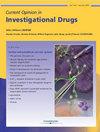The mechanism of action for oxyntomodulin in the regulation of obesity.
Current opinion in investigational drugs
Pub Date : 2010-10-01
引用次数: 0
Abstract
Oxyntomodulin, a product of the proglucagon gene, is released from the enteroendocrine L-cells of the gastrointestinal tract after the digestion of food, and acts via glucagon-like peptide 1 receptors in the arcuate nucleus to induce satiety. The administration of oxyntomodulin to animals and humans causes weight loss by reducing food intake in combination with increasing energy expenditure. Thus, the development of potent and long-acting analogs of oxyntomodulin is an exciting new therapeutic avenue for addressing the global obesity epidemic. This review discusses the role of oxyntomodulin in the physiological control of appetite, and presents the currently available evidence suggesting its potential as an obesity treatment.
氧同调素在调节肥胖中的作用机制。
Oxyntomodulin是胰高血糖素原基因的产物,在食物消化后由胃肠道肠内分泌l细胞释放,通过弓形核中的胰高血糖素样肽1受体诱导饱腹感。对动物和人类施用氧合调节素可通过减少食物摄入和增加能量消耗来减轻体重。因此,开发有效和长效的氧同调素类似物是解决全球肥胖流行病的一个令人兴奋的新治疗途径。这篇综述讨论了氧合调节素在食欲生理控制中的作用,并提出了目前可用的证据表明其作为肥胖治疗的潜力。
本文章由计算机程序翻译,如有差异,请以英文原文为准。
求助全文
约1分钟内获得全文
求助全文

 求助内容:
求助内容: 应助结果提醒方式:
应助结果提醒方式:


